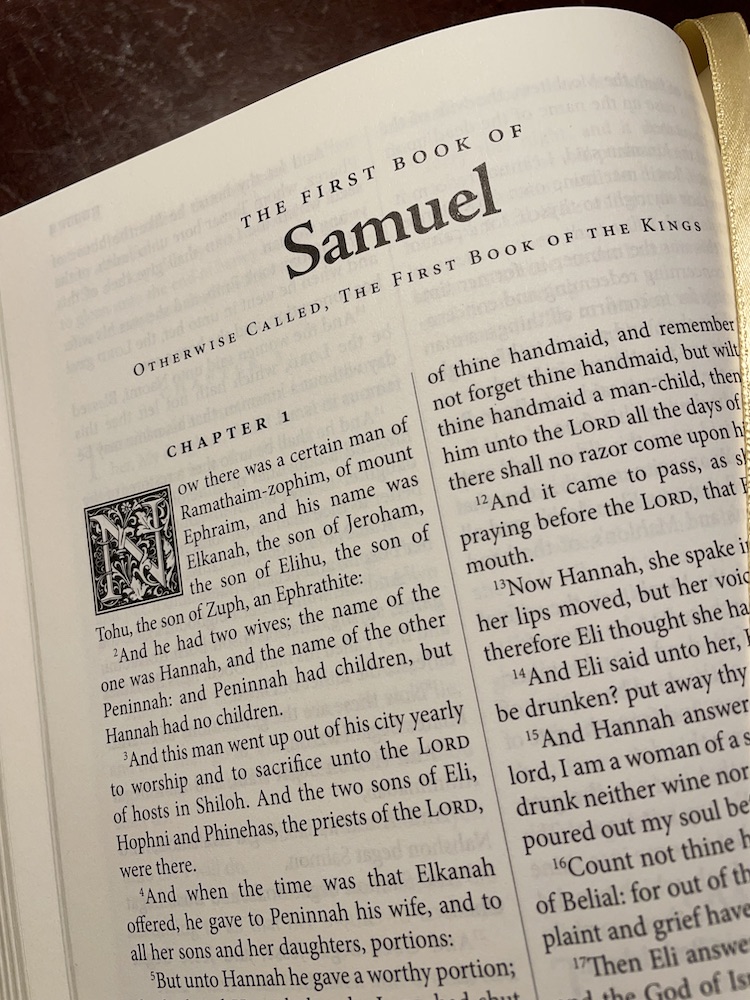
1 Samuel 11
1 Samuel 11:4, Then the Spirit of Elohim came upon Saul. How do we know that this was not merely the human passion of anger that aroused in Saul causing him to take action as opposed to the moving of the Spirit? Indeed it was human passion, for this verse says that “his anger was greatly aroused.” But the fact that the fruits of his action led to YHVH’s will for the nation of Israel being accomplished indicates that Saul was motivated by the Spirit, and that this was not just a purely human reaction. Often times it is hard to determine if one’s actions are carnally motivated or they are being led of the Spirit. This is where righteous judgments must be made (John 7:24), and the fruits must be evaluated whether they be good or bad (Matt 7:16–20). When the will of Elohim is accomplished, then we can be sure that it was a Spirit-directed activity. In the case of Saul’s anger against Nahash the Ammonite, his anger led to the rallying of Israel’s troops, the defeat of Israel’s enemy, the salvation of Israel, unification of Israel under Saul and Samuel, and the renewal of the kingdom of Israel resulting in national revival (vv. 13–15).

1 Samuel 11:14, And renew the kingdom there. According to The ArtScroll Rubin Edition Prophets Commentary, Gilgal was the place where Joshua had originally set up the Tabernacle of Moses upon Israel entering the Promised Land (p. 69; Josh 5:9–10). From the time of Joshua to Samuel, Israel had fallen on hard times physically and spiritually. As a nation, Samuel was leading Israel back to the geographical spot where it was last a great nation and walking in will of YHVH. A wise person once said, “If you’re not hearing the voice of YHVH in your life and he seems to be silent, then go back to the last place where he told you to do something and you said, ‘No.’ That’s the spot where he told you to go right and you went left.” This principle applies to nations and to individuals as well. Reflect on this as pertaining to your life.
1 Samuel 12
1 Samuel 12:1ff, A king over you. The establishment of Saul as king in Israel was a constitutional or limited monarchy, unlike the kings of other Eastern nations of the time where the king had total, unlimited and absolute power. Their kings ruled by whim and fancy, while Israel’s would be subservient to the Torah; their kings placed their self-aggrandizement above the national interest, while Israel’s king was charged with upholding and safeguarding the nation’s righteousness, and with guiding Israel as the bearer of [Elohim’s]—not the king’s—majesty (The ArtScroll Stone Edition Chumash, p. 1187). “The [Israelite] king was bound to respect the liberty, honour, and the property of his subjects, and his powers were strictly limited by the fundamental laws of the Torah (Deut 17:14–20). Prophets, psalmists, and sages all conceived of the king as a shepherd of his people, whose scepter should be a scepter of peace, pity, and righteousness” (The Soncino Pentateuch, p. 649). This is the basis of a republican form of government, which, in theory, describes the American form government. As you become more familiar with YHVH’s laws it will become evident that certain aspects of the American legal code derive from the Torah. This truth underscores the fact that our society has deep Judeo-Christian roots.
1 Samuel 12:3, Whose ass have I taken? The moral integrity of spiritual leadership is essential. Most leaders in Christian church would strongly assert their probity (honesty and decency), and at the same time would deny that they are building their ministry kingdoms for personal benefit, but what is the real truth? How do they treat their children and wives behind the scenes? What is their response toward their detractors? How do they treat other “competing” ministries? Do they live off of YHVH’s sheep, or do they use tithes and offerings for the care and feeding of YHVH’s sheep? If they do receive income from their flocks, how dependent are they on that income? To what degree do they make decisions affecting the congregation in order to solicit a response that will ensure the security of their position as chief leader and beneficiary of the congregation’s largesse? To what degree do they angle their teaching and preaching to curry the favor of their constituents thus keeping the funds flowing toward them? These are questions that spiritual leaders all need to ask of themselves.
Continue reading
